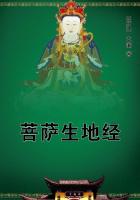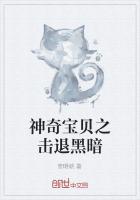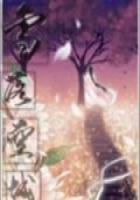"Up on Adeline, near Tenth--fine neighborhood an' fine two-storied house. He must pay thirty dollars a month rent. I guess the railroad paid him pretty well."
"Then he must be married?"
"Yep. I never seen his wife, but he's got one son, Jack, a passenger engineer. I used to know him. He was a nifty boxer, though he never went into the ring. An' he's got another son that's teacher in the high school. His name's Paul. We're about the same age. He was great at baseball. I knew him when we was kids. He pitched me out three times hand-runnin' once, when the Durant played the Cole School."
Saxon sat back in the Morris chair, resting and thinking. The problem was growing more complicated than ever. This elderly, round-bellied, and bald-headed gunfighter, too, had a wife and family. And there was Frank Davis, married barely a year and with a baby boy. Perhaps the scab he shot in the stomach had a wife and children. All seemed to be acquainted, members of a very large family, and yet, because of their particular families, they battered and killed each other. She had seen Chester Johnson kill a scab, and now they were going to hang Chester Johnson, who had married Kittie Brady out of the cannery, and she and Kittie Brady had worked together years before in the paper box factory.
Vainly Saxon waked for Billy to say something that would show he did not countenance the killing of the scabs.
"It was wrong," she ventured finally.
"They killed Bert," he countered. "An' a lot of others. An' Frank Davis. Did you know he was dead? Had his whole lower jaw shot away--died in the ambulance before they could get him to the receiving hospital. There was never so much killin' at one time in Oakland before."
"But it was their fault," she contended. "They began it. It was murder."
Billy did not reply, but she heard him mutter hoarsely. She knew he said "God damn them"; but when she asked, "What?" he made no answer. His eyes were deep with troubled clouds, while the mouth had hardened, and all his face was bleak.
To her it was a heart-stab. Was he, too, like the rest? Would he kill other men who had families, like Bert, and Frank Davis, and Chester Johnson had killed? Was he, too, a wild beast, a dog that would snarl over a bone?
She sighed. Life was a strange puzzle. Perhaps Mercedes Higgins was right in her cruel statement of the terms of existence.
"What of it," Billy laughed harshly, as if in answer to her unuttered questions. "It's dog eat dog, I guess, and it's always ben that way. Take that scrap outside there. They killed each other just like the North an' South did in the Civil War."
"But workingmen can't win that way, Billy. You say yourself that it spoiled their chance of winning."
"I suppose not," he admitted reluctantly. "But what other chance they've got to win I don't see. Look at 'us. We'll be up against it next."
"Not the teamsters?" she cried.
He nodded gloomily.
"The bosses are cuttin' loose all along the line for a high old time. Say they're goin' to beat us to our knees till we come crawlin' back a-beggin' for our jobs. They've bucked up real high an' mighty what of all that killin' the other day. Havin' the troops out is half the fight, along with havin' the preachers an' the papers an' the public behind 'em. They're shootin' off their mouths already about what they're goin' to do. They're sure gunning for trouble. First, they're goin' to hang Chester Johnson an' as many more of the fifteen as they can. They say that flat.
The Tribune, an' the Enquirer an' the Times keep sayin' it over an over every day. They're all union-hustin' to beat the band. No more closed shop. To hell with organized labor. Why, the dirty little Intelligencer come out this morning an' said that every union official in Oakland ought to be run outa town or stretched up. Fine, Eh? You bet it's fine.
"Look at us. It ain't a case any more of sympathetic strike for the mill-workers. We got our own troubles. They've fired our four best men--the ones that was always on the conference committees.















